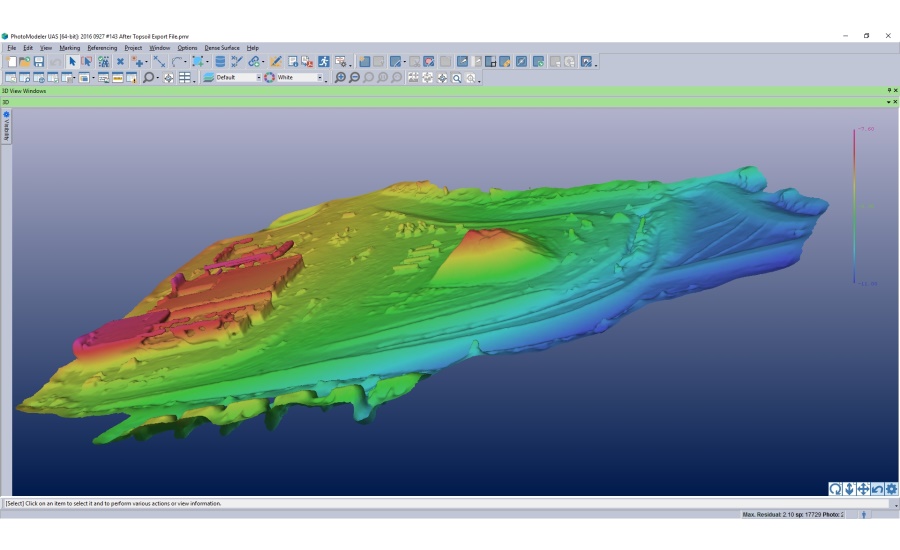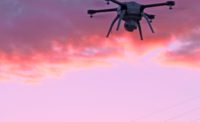Eos Systems Inc. has introduced new photogrammetry software optimized specifically for photographs taken with drones or unmanned aerial systems (UAS).
The new PhotoModeler UAS 2016 software creates 3D models, measurements, and maps from photographs taken with ordinary cameras built-in or mounted on drones. It includes numerous features for optimized operation with drone photos including post processing kinematics (PPK), volume objects, full geographic coordinate systems support, multispectral image support and control point assist.
Eos Systems will be showing the new PhotoModeler UAS product at the Commercial UAV Expo in Las Vegas, Oct. 31 to Nov. 2, 2016 and will offer the new software at $2,275, 35 percent off the normal price, from November 1 to November 30, 2016.
The new version of PhotoModeler is ideally suited for drone photogrammetry applications including surveying, ground contouring, surface model creation, stock pile volume measurement, mining and mine reclamation, environmental analysis, slope analysis, forensic analysis, construction, and agricultural crop analysis. New applications for drone photogrammetry are developed monthly. Eos PhotoModeler was introduced 23 years ago and has become one of the leading photogrammetric software platforms with a wide range of users in fields such as architecture, engineering, surveying, research, manufacturing and forensics.
PhotoModeler UAS 2016 software includes numerous features that provide higher performance in drone photogrammetry. Camera calibration is optimized for high accuracy with UASs and the global positioning system (GPS). Post processed kinematics (PPK) makes it possible to correct a survey with GPS data after the fact for survey grade accuracy. Volume objects provide easy and accurate volume data for stock piles and mining operations.
Full geographic coordinate system support enables users to work in their local geographic coordinate system for better compatibility. Support is provided for multispectral images including Normalized Difference Vegetation Index (NDVI) surface models and ortho-mosaics for precision agriculture. An intuitive interface is provided for efficiently marking ground control points.









